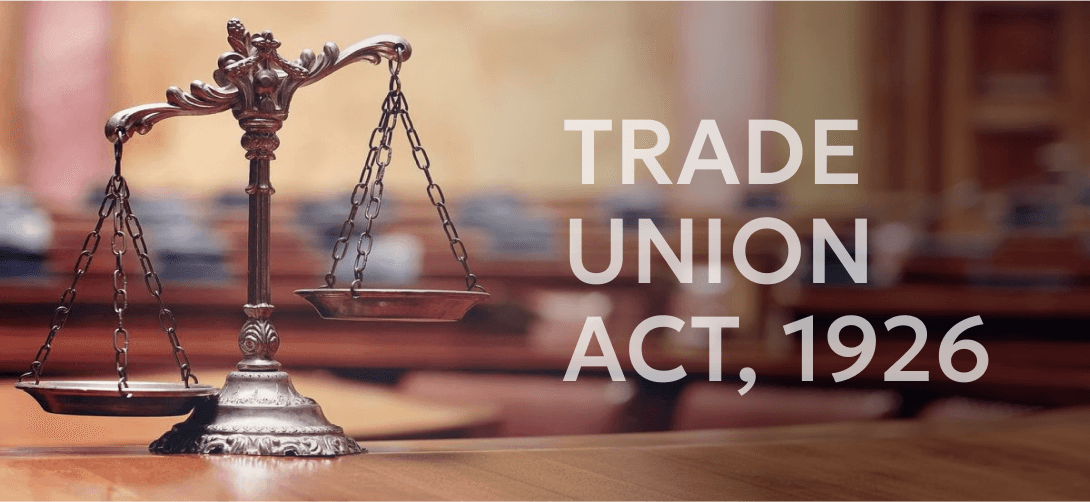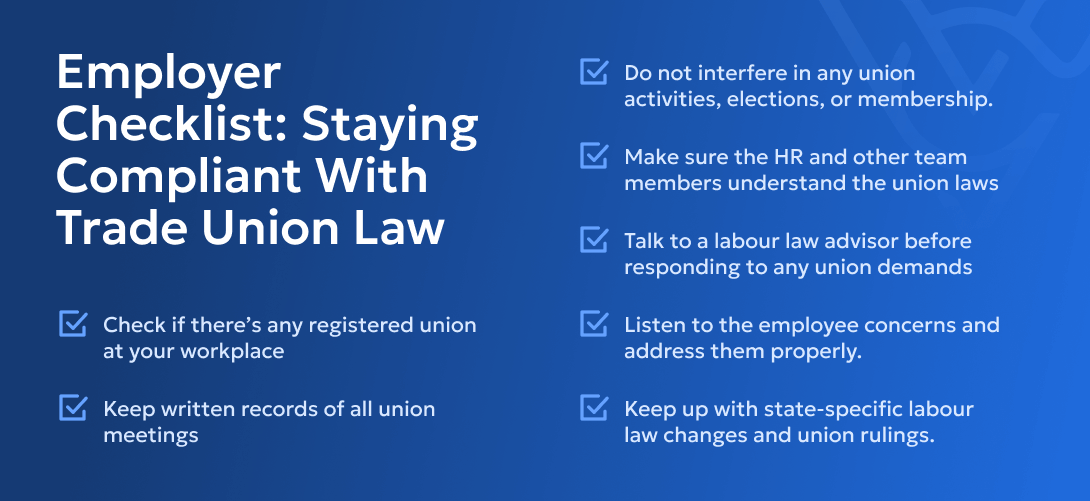
Table of Content
What happens when you ignore trade unions at your workplace?
Ignoring trade unions’ unrest can cause serious consequences. It happened to an automobile plant in Manesar, Haryana in June 2012. A major labour crisis broke out when the wage negotiations failed. The situation turned violent, leading to the death of a senior HR manager and serious damage to the company’s image and operations.
This incident was more than a tragedy. It acted as a strong warning for companies across the country. Trade unions are growing across different industries. Whether you run either a small or a large business, this matters to you. You should know your rights, your responsibilities, and how the law protects both employers and workers.
In this guide, we’ll explain the rights and liabilities of trade unions in a way that helps you stay informed and compliant:
To understand what is trade union in labour law, think of them as worker groups that aim to protect employee rights and improve their work life. These groups focus on issues such as fair wages, workplace safety, and job security.
Under the Trade Unions Act, 1926, the law states:
Trade unions in India have legal rights that empower them to negotiate with employers and support workers.
Here’s what they can do:

Trade unions not only have rights but also clear legal responsibilities. These ensure that unions act lawfully, fairly, and with transparency. Employers should understand these duties because if unions violate them, there can be serious consequences.
Here are the key responsibilities every trade union must follow:
The Incident:
Legal Fallout:
Final Outcome:
What Employers Should Learn:

To handle trade union matters effectively, employers need to know the role of trade unions in labour law. These laws outline both the rights of unions and the limits of their actions.
Here are the laws that form the foundation of trade union law in India and define how disputes, strikes, and negotiations are handled:

Mistakes with trade union management can lead to legal challenges or damage employee trust. The good news is, most of these issues are preventable.
Let’s look at the most frequent mistakes and how to fix them:
Trade union matters can become complex quickly, especially when employers aren’t sure how to respond. Vishaal Consultancy Services guides you in handling these issues confidently and stay legally safe.
We help you review your HR policies, respond to union demands, and manage disputes or inspections. Our team also keeps you updated on changing labour laws and offers solutions that fit your business needs.
Trade unions are more active than ever across sectors. Understanding the rights and liabilities of trade unions and trade union law in India helps build lawful and stable workplaces. When you clearly understand your legal role, you’re better equipped to manage unions without stress or guesswork.
Vishaal Consultancy Services offers expert labour law advisory guidance to simplify trade union compliance, manage disputes, and protect your business from legal risks. Whether you’re facing union activity or want to prevent future issues, our team provides hands-on, practical support at every step.
See Related Blogs
BLOGS
Fill in your details to download our exclusive e-learning document.
Fill in your details to download our exclusive e-learning document.
Fill in your details to download our exclusive e-learning document.